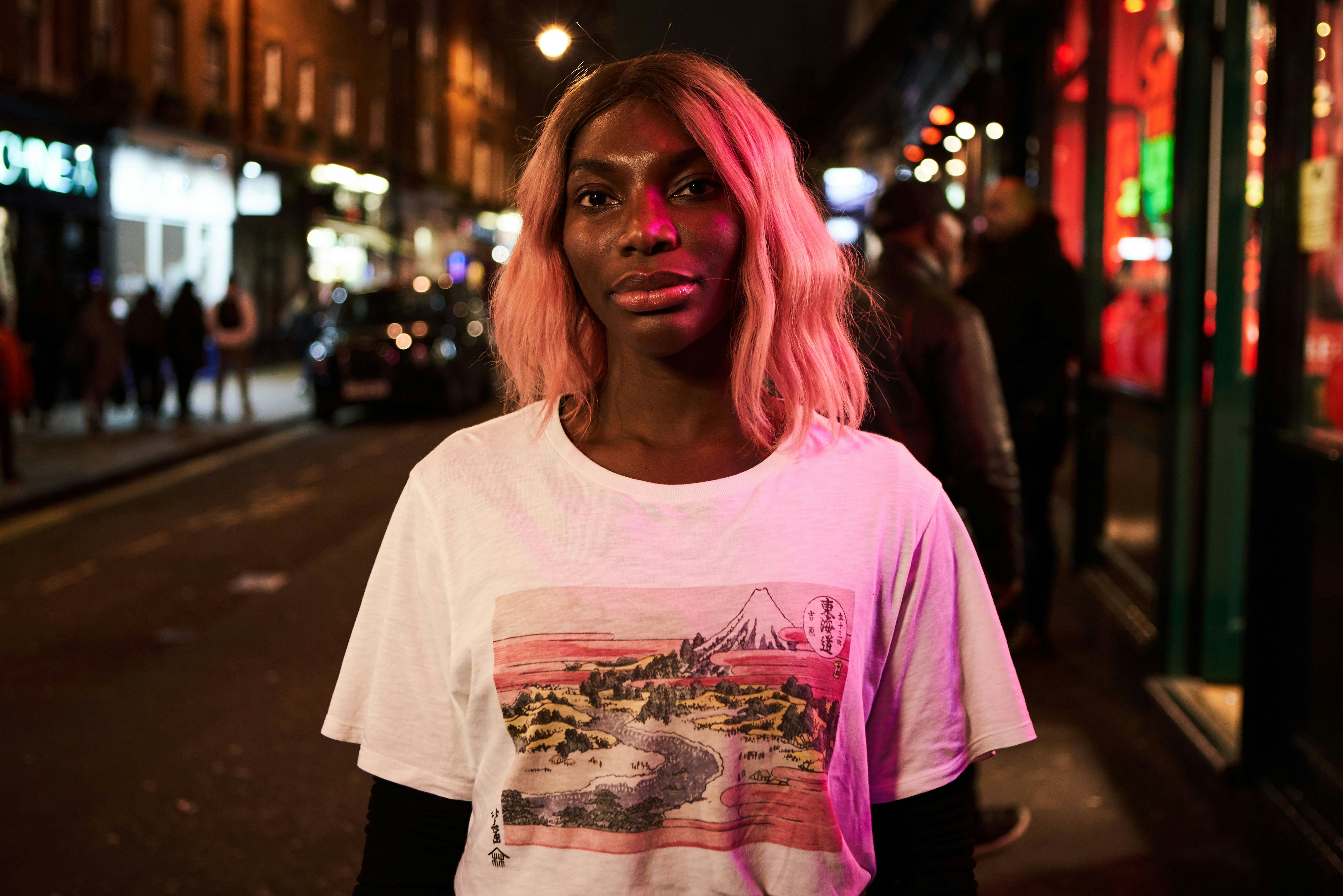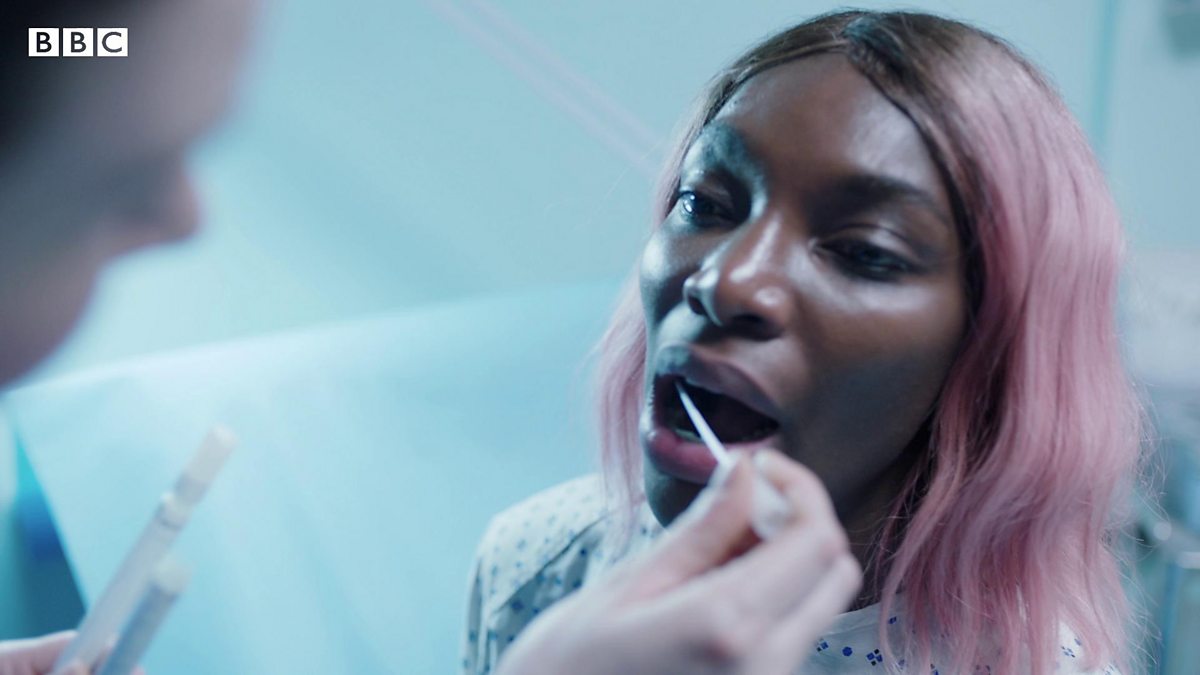

David takes her to the bathroom again, and this time, he goes into an angry, emotional monologue: "There's wars going on in Iraq, and you're making a big old drama 'cause some bloke slipped a pill in your drink and wants to f*ck your brains out in a nightclub?" Through this, he tries to justify his behavior, becoming even more emotional, showing aspects of his own psyche as he cries and repeats statements like, "Don't you tell anyone, David" and "You're worthless." Here, the viewer can see David has been sexually assaulted previously, and is working through trauma of his own.

Two versions of Arabella dance in front of David at the bar, the current Arabella and the one that was originally raped in her red jacket and purple hair. The Second Reimagining: The Empathetic Melodrama and Cycle of Abuse He is dead, but he cannot just be "swept under the bed," he still seeps out, just like her constant flashbacks of the rape. Soon enough, Arabella is beating him up on the street, takes him home, and as she shoves him under her bed, his blood seeps out from under it. Arabella thoughtfully asks, "Who is the criminal, you or me?" which begs questions about power, control, and their relationship to justice and gender. David takes Arabella to the bathroom, thinking he has drugged her, and just as he begins to unzip his pants, Theo injects him with his own drugs. Arabella approaches David while Terry distracts him and Theo steals the drugs he uses to spike drinks.

She immediately has a plan, calling upon best friend, Terry, and Theo, the head of her sexual-assault support group, for help. In the first iteration of the dreamlike finale sequence, Arabella is at the bar where she was assaulted, and immediately recognizes her rapist, David. The First Reimagining: The Ultimate Vengeance The finale portrays the deepest use of Coel's vignettes in their most defined form, taking Arabella's rape at the bar and reimagining three different iterations of her finding justice, examining the act of sexual assault over and over again in search of elusive answers.

By the finale, we're poised to experience a culmination of Arabella's trauma, and through Coel's constant use of vignettes throughout the show, it is totally logical that dreamlike vignettes are the way Arabella processes what happened to her. The show is off-kilter in a deeply thoughtful manner, painting a portrait of loneliness and even cruelty within sexual and romantic relationships, juxtaposed by the beauty and complexity of friendship. The repetitive, dreamlike finale goes through several iterations of how Arabella could find closure, turning each cliché common in scripted portrayals on its head to examine gray-area perspectives. Utilizing surrealism that may have seemed jarring to some viewers, the episode examines Arabella's link to her assailant through different scenarios: vengeance, empathetic melodrama, and even role-switching romanticism.
I MAY DESTROY YOU DAVID SERIES
HBO has aired the last episode of Michaela Coel's groundbreaking series I May Destroy You.


 0 kommentar(er)
0 kommentar(er)
